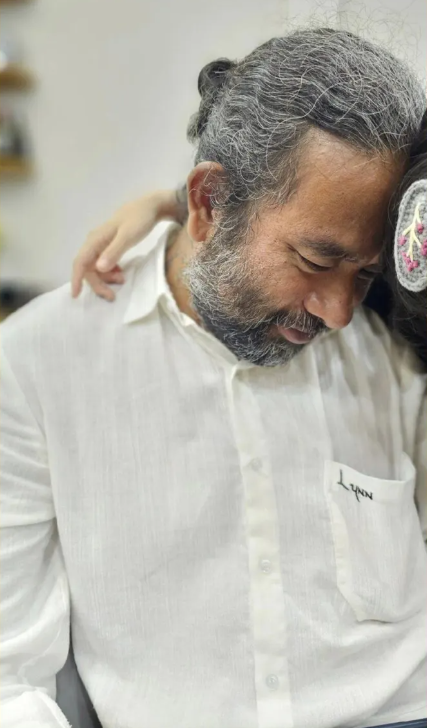








The Digital Evolution of Healthcare
Welcome to the age where every piece of information about our health seems to be just a click away. From medical records to diagnostic reports, it’s all floating around in the digital realm. But with great convenience comes great responsibility, especially when it comes to safeguarding sensitive data. Enter blockchain, the superhero of data security in the healthcare industry. In this blog post, we’ll delve into how blockchain is revolutionizing healthcare data security and ensuring the protection of patient records.
Understanding the Healthcare Data Conundrum
Imagine your medical records as a treasure trove of personal information, ranging from your blood type to your entire medical history. Now, picture this treasure trove vulnerable to cyber-attacks and breaches, exposing your private details to malicious entities. Scary, right? Unfortunately, this is the reality of the healthcare industry, where data breaches are not uncommon occurrences.
The Rise of Blockchain in Healthcare
Enter blockchain, the game-changer in the realm of data security. You might have heard of blockchain in the context of cryptocurrencies like Bitcoin, but its application extends far beyond digital currencies. At its core, blockchain is a decentralized, distributed ledger technology that ensures secure, tamper-proof transactions. In healthcare, blockchain serves as a fortress, protecting patient data from unauthorized access and tampering.
How Blockchain Works its Magic
Picture a chain of blocks, each containing a batch of transactions. These blocks are linked together in a chronological order, forming a continuous chain. Now, here’s the magic: every block contains a unique cryptographic hash of the previous block, making it virtually impossible to alter any block without altering all subsequent blocks. This means that once data is recorded on the blockchain, it’s there to stay, immutable and incorruptible.
Enhanced Security Through Decentralization
One of the key strengths of blockchain lies in its decentralized nature. Unlike traditional centralized systems where data is stored in a single location, blockchain distributes data across a network of computers, called nodes. Each node maintains a copy of the entire blockchain, ensuring redundancy and resilience against attacks. This decentralized architecture makes it exceedingly difficult for hackers to compromise the integrity of the data.
Ensuring Data Integrity with Smart Contracts
But wait, there’s more! Blockchain doesn’t just stop at securing data; it also enables automated, self-executing contracts known as smart contracts. These contracts are programmed to execute predefined actions when certain conditions are met, without the need for intermediaries. In the context of healthcare, smart contracts can be used to enforce data access controls, ensuring that only authorized parties can view or modify patient records.
Empowering Patients with Ownership of their Data
In the traditional healthcare system, patients often have limited control over their own medical data. Once recorded, this data is typically owned and controlled by healthcare providers or institutions. However, blockchain flips the script by giving patients ownership of their data. Through cryptographic keys, patients can securely access, share, and even monetize their health information, putting them in the driver’s seat of their own healthcare journey.
Challenges and Limitations of Blockchain in Healthcare
While blockchain holds tremendous promise for healthcare data security, it’s not without its challenges and limitations. One major hurdle is interoperability, as different healthcare systems may use incompatible blockchain platforms or standards. Moreover, the scalability of blockchain remains an ongoing concern, especially as the volume of healthcare data continues to skyrocket. Additionally, regulatory and privacy concerns pose significant barriers to widespread adoption.
Real-World Applications of Blockchain in Healthcare
Despite these challenges, blockchain is already making waves in the healthcare industry. From streamlining medical record management to improving supply chain transparency, the applications of blockchain are diverse and far-reaching. For instance, companies like Medicalchain are leveraging blockchain to create secure, accessible health records that can be shared seamlessly between patients and healthcare providers.
The Future of Healthcare Data Security
As we look to the future, the role of blockchain in healthcare data security will only continue to expand. With advancements in blockchain technology and growing awareness of the importance of data privacy, we can expect to see greater adoption of blockchain solutions across the healthcare ecosystem. From electronic health records to clinical trials management, blockchain has the potential to transform every aspect of healthcare delivery, ensuring that patient data remains secure and protected.
Building a Secure Future for Healthcare
In conclusion, blockchain serves as a beacon of hope in the quest for healthcare data security. By harnessing the power of decentralization, immutability, and smart contracts, blockchain offers a robust solution to the ever-present threat of data breaches and cyber-attacks. While challenges remain, the potential benefits of blockchain in healthcare are undeniable. So, here’s to a future where patient records are safeguarded by the unbreakable chains of blockchain technology.